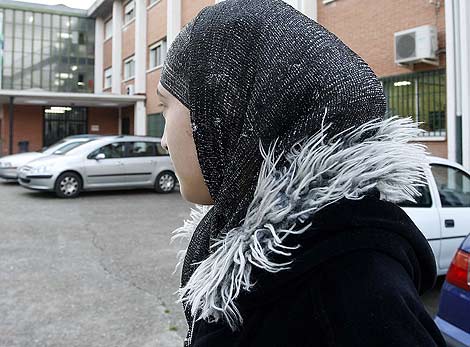More than half of voters in four other major European states back a push by France’s Nicolas Sarkozy to ban women from wearing the burka, according to an opinion poll for the Financial Times.
As Mr Sarkozy presses ahead with plans to ban the wearing of the burka in public places, the FT’s latest Harris poll shows the move is not just strongly supported in France, but wins enthusiastic backing in the UK, Italy, Spain and Germany.
The poll shows some 70 per cent of respondents in France said they supported plans to forbid the wearing of the garment which covers the female body from head to toe. There was similar sentiment in Spain and Italy, where 65 per cent and 63 per cent respectively favoured a ban.
The strength of feeling in the UK and Germany may seem particularly surprising. Britain has a strong liberal tradition that respects an individual’s right to full expression of religious views. But here, some 57 per cent of people still favoured a ban. In Germany, which is also reluctant to clamp down on minority rights, some 50 per cent favoured a ban.
“This poll shows that the number of people in France opposed to the burka is going up and that is the product of debate on burka and national identity,” said Professor Patrick Weil, an expert on national identity at the University of Paris-Sorbonne. “But the figure is clearly going up in other countries in Europe like the UK as well, and that reflects the growing concern that there is about this issue in some parts of Europe.”
In the US, concerns about the issue are far less strong than in Europe. Just 33 per cent of Americans surveyed by Harris supported a ban, a far lower figure than the 44 per cent who said they supported it.
In Europe, while opposition to the burka was strong, few respondents said they were prepared to support the ban as part of a wider drive towards secularism in their country. Asked if they would support the burka ban if it were accompanied by a clampdown on wearing all religious icons such as the Christian crucifix and the Jewish cappel, only 22 per cent of French people said they supported such a move. In Britain, just 9 per cent of people said they would back such a move.
Financial Times, 1 March 2010

 A 16-year-old schoolgirl has been banned from classes in Spain after refusing to remove her Islamic headscarf, re-igniting the national debate over the hijab.
A 16-year-old schoolgirl has been banned from classes in Spain after refusing to remove her Islamic headscarf, re-igniting the national debate over the hijab.
